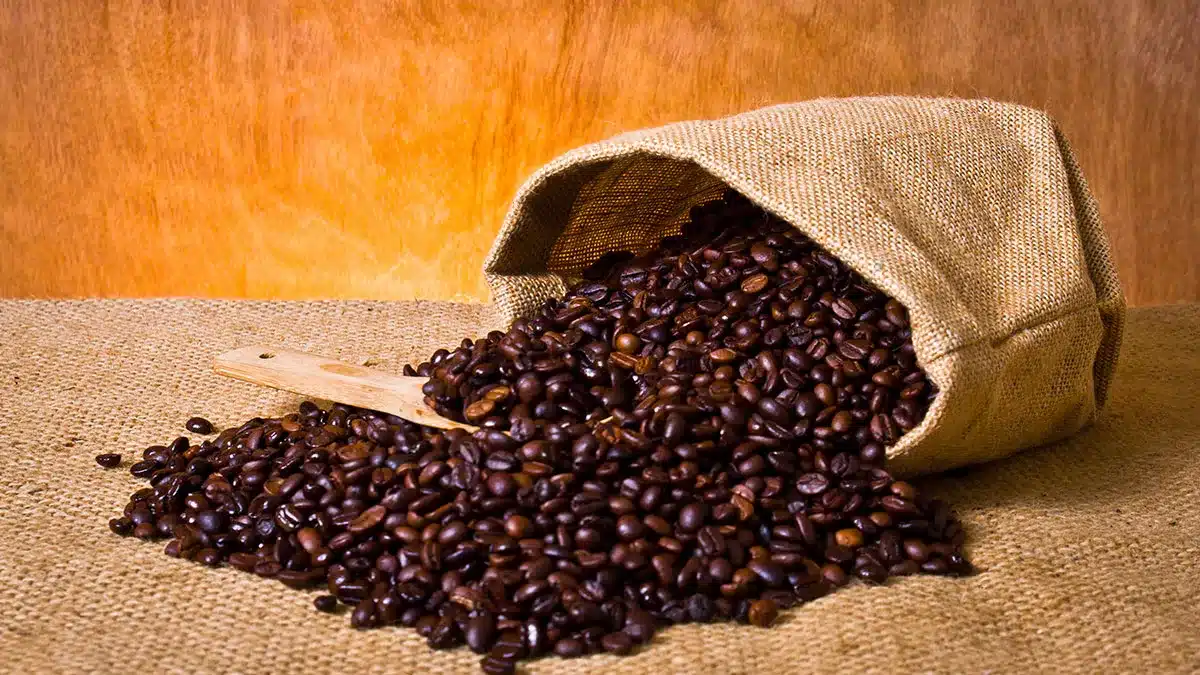Ready to drink coffee refers to coffee beverages that are fully prepared, packaged, and ready for immediate consumption – no brewing, no waiting. Unlike instant coffee, RTD coffee delivers consistent flavor, aroma, and shelf-life stability, making it ideal for both retail and export markets.
This segment represents the fusion of convenience and premiumization, reflecting modern consumers’ demand for high-quality, on-the-go beverages with authentic taste and functional benefits.
In short: RTD coffee = barista-quality experience, anytime, anywhere.
Table of Contents
Why Vietnam Offers a Unique Competitive Edge
The Power of Robusta: Strength, Body & Enter

Vietnam is the world’s leading Robusta producer. This bean type offers superior caffeine levels, creamy mouthfeel, and flavor depth – all perfect for industrial-scale ready to drink coffee manufacturing. Robusta also maintains better stability during thermal sterilization and UHT processing, essential for long shelf life and export.
Cost Efficiency Meets Quality Control
Large-scale Robusta sourcing ensures consistent supply and lower input costs, giving Vietnamese producers a natural advantage. When blended with Arabica, local manufacturers can achieve signature fusion profiles – smooth, rich, and distinct – ideal for private label RTD coffee lines seeking differentiation.
Vietnam’s balance of cost efficiency, taste stability, and manufacturing flexibility makes it one of Asia’s top emerging RTD coffee hubs.
Key Market Segments of Ready to Drink Coffee
| Segment Type | Typical Products | Consumer Insight | Brand Opportunity | Challenges & Solutions |
| 1. Value & Convenience | Canned coffee, sweet milk coffee, standard espresso blends | Targeted at mass-market consumers seeking affordability and familiarity | Large volume sales, mainstream retail distribution | Price competition; requires efficient cost control |
| 2. Premium & Experience-Based | Cold brew, nitro coffee, single-origin RTD bottles | Urban professionals and coffee aficionados valuing craftsmanship and taste | Enables “craft” storytelling and higher price points | Demands specialty packaging and quality control |
| 3. Health & Functional | Sugar-free RTD coffee, protein or collagen coffee, plant-based blends | Health-conscious, fitness-driven consumers | Leverage functional claims (“energy,” “focus,” “beauty”) | Requires compliance with nutrition & labeling standards |
| 4. Sustainable & Ethical | Organic, fair-trade, or carbon-neutral RTD coffee | Environmentally aware consumers | Builds trust and ESG-driven branding | Costlier sourcing; requires transparent traceability |
| 5. Customized Private Label | Retailer or café-branded RTD coffee lines | Distributors, chain stores, and hospitality groups | Control brand image and profit margin | Requires OEM partnership with certified manufacturer |
Each segment requires different packaging, shelf-life strategy, and a marketing approach. Beverage distributors can diversify across them for stable ROI.
Scientific Backbone of RTD Coffee Manufacturing
The reliability of ready to drink coffee manufacturers lies in their mastery of chemical and physical stability.
- pH Balancing: prevents protein precipitation in dairy/plant-based formulas.
- UHT Sterilization: extends shelf life up to 12 months while maintaining flavor.
- High-Pressure Processing (HPP): allows clean-label formulations without preservatives.
- Aseptic Filling & De-Aeration: protects aroma and prevents oxidation during storage.
Together, these processes ensure that every can or bottle of RTD coffee remains stable, safe, and flavorful throughout its global journey.
Business Benefits of Ready to Drink Coffee for Brands & Distributors
Ready to drink coffee empowers distributors to evolve from sellers into brand owners
Build a Modern, Youthful Brand Image

RTD coffee bridges traditional coffee culture and contemporary convenience. Attractive packaging, strong caffeine positioning, and diverse flavors help brands modernize their image and connect with Gen Z and Millennials — who now make up over 60% of beverage consumers globally.
Product Customization & Market Flexibility
Vietnamese OEM facilities enable flexible, fast-turnaround customization:
- Milk-based RTD coffee
- Cold brew or nitro-infused
- Functional blends (protein, collagen, MCT)
- Localized flavors (coconut, salted, caramel, mocha)
This flexibility allows brands and importers to adapt formulas to local tastes, cut R&D costs, and reduce time-to-market — a key advantage in competitive retail environments.
Profit Margin Optimization
RTD coffee offers:
- Stable supply chain control
- Lower production cost per unit
- Long shelf life (6–12 months)
For distributors, owning a private label RTD line can increase gross margins by 20–40% compared to reselling established international brands.
Alignment with Functional Beverage Trends
Modern consumers want more than caffeine. RTD coffee can be fortified with:
- Adaptogens (Ashwagandha, Rhodiola)
- Proteins or Collagen
- Low-calorie or sugar-free formulas
These innovations shift the perception of RTD coffee from an “energy fix” to a lifestyle beverage, attracting health-conscious buyers and expanding into premium retail channels.
Strong Export & Global Branding Potential
Vietnamese ready to drink coffee manufacturers meet international standards (ISO, HACCP, FDA, Halal), making export straightforward. Brands can customize multilingual packaging, leverage the “Made in Vietnam” origin story, and expand into diverse markets such as:
- East Asia (Japan, Korea)
- Middle East (UAE, Qatar, Saudi Arabia)
- Europe and North America
With strategic branding and reliable OEM support, RTD coffee can become your gateway to global beverage markets.
Sustainability & Green Value Creation
Modern RTD lines increasingly adopt eco-friendly packaging:
- Recyclable PET or glass bottles
- Bio-labels and water-based inks
- Carbon-neutral production models
This not only enhances brand reputation but also helps meet ESG and import sustainability standards in Western markets.
Multi-Channel Reach & Faster Market Penetration
RTD coffee can fit seamlessly into:
- Modern trade (supermarkets, convenience stores)
- HoReCa (cafés, hotels, airlines)
- Vending and fuel station networks
This multi-touchpoint visibility drives higher rotation rates, customer loyalty, and continuous data-driven improvements.
FAQ
- Why is Robusta coffee from Vietnam a better choice than Arabica for mass-market RTD manufacturing?
Robusta offers superior caffeine content and a stronger, creamier mouthfeel, which is highly preferred in milk-based RTD formulas. Crucially, Robusta beans maintain better stability during thermal sterilization (UHT), leading to a longer, safer shelf life and lower input costs compared to high-cost imported Arabica.
- What is the biggest risk when importing RTD Coffee with a 6–12 month shelf life?
The main risk is oxidation, which causes flavor degradation before the expiration date. This requires strict quality control, including effective de-aeration to remove dissolved oxygen and robust packaging to withstand long-distance shipping.
- How can our RTD Coffee stand out against large international brands?
Differentiation is achieved by leveraging the Robusta Vietnam Edge (superior strength and cost) combined with product specialization: focusing on the Functional Segment (Adaptogens, Protein), unique Fusion Flavor Profiles, and utilizing sustainable or eye-catching packaging for strong shelf visibility.
REFERENCES
Mintel. (2023) Global coffee trends and market forecasts (2023–2028). Available at: https://www.mintel.com (Accessed: 5 November 2025).
International Organization for Standardization (ISO). (2018) ISO 22000: Food safety management systems – Requirements for any organization in the food chain. Geneva: ISO. Available at: https://www.iso.org/standard/65464.html.
Vietnamese Ministry of Industry and Trade (MOIT). (2023) Vietnam’s export strategy for key agricultural products. Hanoi: MOIT. Available at: https://www.moit.gov.vn (Accessed: 5 November 2025).
Euromonitor International. (2024) Ready-to-drink beverages: Global opportunities and innovations. Available at: https://www.euromonitor.com .
